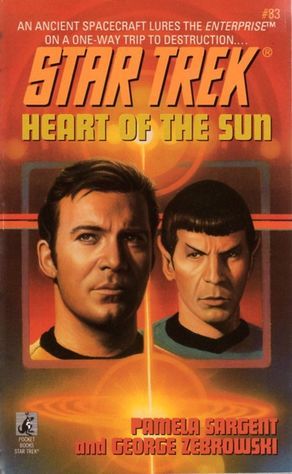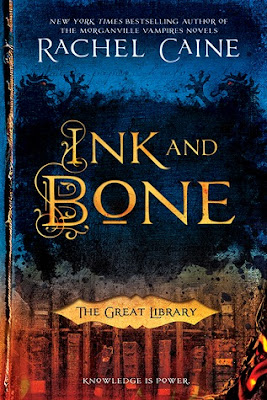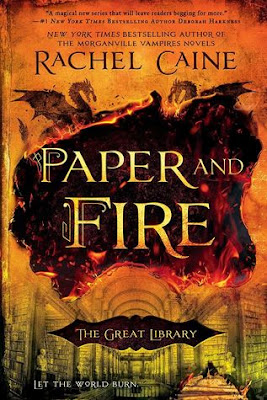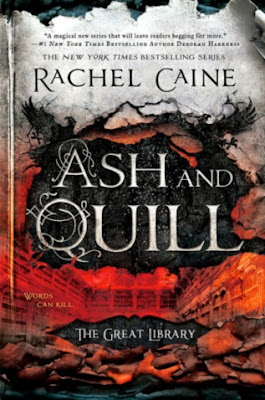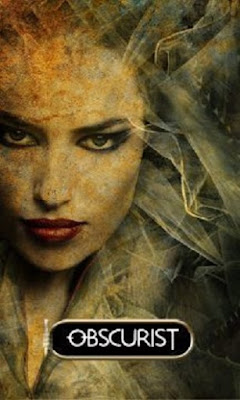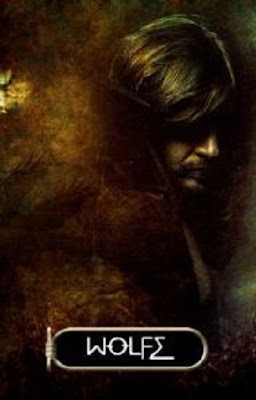Heart of the Sun
(Star Trek, The Original Series, Book 83)
Pamela Sargent & George Zebrowski
Mass Market Paperback,
245 pages
Pocket Books, First Edition,
Nov. 1, 1997
Star Trek TOS, Science Fiction
Source: Barnes & Noble Bookstore
Synopsis: When an abandoned space habitat is found within a distant asteroid belt, the Starship Enterprise is sent to investigate. Captain Kirk and his crew discover an artificial world full of technological marvels – and unexpected dangers. But wonder and curiosity soon give way to fear when the habitat suddenly sends itself on a collision course with the system's sun, with Spock inside! Now Kirk and crew must find a way to save a planet, and a friend, without destroying the treasure trove of alien science, and time is running out...
Overall, this was a fairly satisfying read. I do have some quibbles, though.....
I can't deny that the characters were spot on! Spock's usual demeanor elicits Kirk's good-natured humor, while McCoy gets in his usual digs at Spock. Scotty, of course, mentions that machines can get "ill", just as people can. Uhura is her usual calm, observant self. I felt as if I were actually watching a Star Trek episode from the original series!
What this book's synopsis fails to mention is that the Enterprise is already en route to a diplomatic mission on the planet Tyrtaeus II when they come across what at first appears to be a meteor, on a direct line to the system's sun. Spock is immediately interested in getting a closer look, but, since they are already on a mission, any investigation must be postponed until that mission has been completed.
This was the part of the novel I liked the least, as it was rather slow-paced. The mission consists of helping the Tyrtaeans to restore some lost data to their planetary computer database. What made this mission a bit unpleasant and tedious -- both to this reader as well as the Enterprise crew -- was the Tyrtaeans' notorious isolationist tendencies. Originally from Earth, they prefer to remain as independent as possible from any outside "interference". They are, in fact, reluctant members of the Federation.
Some new characters were introduced here, such as Aristocles Marcelli and Myra Coles, who govern the planet together, and Wellesley Warren, Myra's assistant. They're not very interesting people, though, nor is their civilization, which strikes the Enterprise crew as rather bland and boring. I heartily agree! The interactions between Kirk, Spock, McCoy, and these people are not without some conflict, however, as the Tyrtaeans insist on investigating the meteor -- which turns out to be a space habitat -- right along with the Enterprise. Kirk initially refuses to allow them to participate, as they are civilians, but then reluctantly gives in, taking Myra and Wellesley on board the starship.
As a very assertive woman, Myra attempts to include her suggestions and ideas in the investigation. Besides, she is very concerned about the effect this space habitat's trajectory toward the sun might have on her planet. I can't say that I blame her for feeling this way, but she did get a bit annoying at times. I did not like her constant complaints and accusations, which were always directed at Kirk. To his credit, Kirk remained courteous and very patient toward her, but it wasn't easy for him.
As for Aristocles, he was just intolerably narrow-minded and unpleasant, and I was VERY glad that he never joined Myra and Wellesley on board the Enterprise! Whenever he appeared in the narrative, I couldn't help curling up my upper lip in disgust. Lol. In fact, he strongly reminded me of the SUPREMELY irritating Nilz Baris (played by character actor William Schallert), the Federation Secretary of Agricultural Affairs, from the HILARIOUS 1967 Star Trek episode, "The Trouble with Tribbles". I guess the authors might have been trying for some comic relief here. Lol.
The rest of the novel deals with the investigation of the space habitat, which turns out to be of alien construction. It is indeed headed straight toward the system's sun. Although Kirk orders Scotty to use phasers and even a tractor beam in order to divert its course, nothing seems to affect the artifact, so they must board it in order to find out if there's a way to prevent its certain collision with the sun. They also intend to warn whoever might be aboard, as they seem unaware of the danger involved.
What Kirk and company discover does make for some fascinating reading, as nothing is as they had feared. In the process, they discover a virtual reality that is totally alien to them. And they discover the aliens themselves.
Although I did find this novel interesting and intriguing, for the most part, I thought the pacing was not only a bit slow in the beginning, as I have already mentioned, but also when the actual investigation of the habitat began. I would have wanted a more detailed description of the aliens' virtual reality. There's a reason they constructed this reality, which the authors do mention, but I wanted MORE. There could have been more details about the alien culture, more interactions between them and our heroes. True, these aliens were of an even more isolationist disposition than the Tyrtaesns, but still.
This novel is definitely very well-written. The authors have certainly captured the "feel" of the original Star Trek episodes. I just wish they had expanded on the concept of the alien culture, and created more conflict with the inhabitants of that culture. The pacing could have been faster. More action was needed. True, there was some conflict with the Tyrtaeans, but these people were descendants of Earth colonists, so I found these interactions less interesting. The aliens in the space habitat, on the other hand, were TOTALLY alien.
In short, this novel fell a little flat for me. I would still recommend it as an entertaining read for the diehard Star Trek TOS fan (like me!). Just don't expect this to be a totally riveting story.
I can't deny that the characters were spot on! Spock's usual demeanor elicits Kirk's good-natured humor, while McCoy gets in his usual digs at Spock. Scotty, of course, mentions that machines can get "ill", just as people can. Uhura is her usual calm, observant self. I felt as if I were actually watching a Star Trek episode from the original series!
What this book's synopsis fails to mention is that the Enterprise is already en route to a diplomatic mission on the planet Tyrtaeus II when they come across what at first appears to be a meteor, on a direct line to the system's sun. Spock is immediately interested in getting a closer look, but, since they are already on a mission, any investigation must be postponed until that mission has been completed.
This was the part of the novel I liked the least, as it was rather slow-paced. The mission consists of helping the Tyrtaeans to restore some lost data to their planetary computer database. What made this mission a bit unpleasant and tedious -- both to this reader as well as the Enterprise crew -- was the Tyrtaeans' notorious isolationist tendencies. Originally from Earth, they prefer to remain as independent as possible from any outside "interference". They are, in fact, reluctant members of the Federation.
Some new characters were introduced here, such as Aristocles Marcelli and Myra Coles, who govern the planet together, and Wellesley Warren, Myra's assistant. They're not very interesting people, though, nor is their civilization, which strikes the Enterprise crew as rather bland and boring. I heartily agree! The interactions between Kirk, Spock, McCoy, and these people are not without some conflict, however, as the Tyrtaeans insist on investigating the meteor -- which turns out to be a space habitat -- right along with the Enterprise. Kirk initially refuses to allow them to participate, as they are civilians, but then reluctantly gives in, taking Myra and Wellesley on board the starship.
As a very assertive woman, Myra attempts to include her suggestions and ideas in the investigation. Besides, she is very concerned about the effect this space habitat's trajectory toward the sun might have on her planet. I can't say that I blame her for feeling this way, but she did get a bit annoying at times. I did not like her constant complaints and accusations, which were always directed at Kirk. To his credit, Kirk remained courteous and very patient toward her, but it wasn't easy for him.
As for Aristocles, he was just intolerably narrow-minded and unpleasant, and I was VERY glad that he never joined Myra and Wellesley on board the Enterprise! Whenever he appeared in the narrative, I couldn't help curling up my upper lip in disgust. Lol. In fact, he strongly reminded me of the SUPREMELY irritating Nilz Baris (played by character actor William Schallert), the Federation Secretary of Agricultural Affairs, from the HILARIOUS 1967 Star Trek episode, "The Trouble with Tribbles". I guess the authors might have been trying for some comic relief here. Lol.
The rest of the novel deals with the investigation of the space habitat, which turns out to be of alien construction. It is indeed headed straight toward the system's sun. Although Kirk orders Scotty to use phasers and even a tractor beam in order to divert its course, nothing seems to affect the artifact, so they must board it in order to find out if there's a way to prevent its certain collision with the sun. They also intend to warn whoever might be aboard, as they seem unaware of the danger involved.
What Kirk and company discover does make for some fascinating reading, as nothing is as they had feared. In the process, they discover a virtual reality that is totally alien to them. And they discover the aliens themselves.
Although I did find this novel interesting and intriguing, for the most part, I thought the pacing was not only a bit slow in the beginning, as I have already mentioned, but also when the actual investigation of the habitat began. I would have wanted a more detailed description of the aliens' virtual reality. There's a reason they constructed this reality, which the authors do mention, but I wanted MORE. There could have been more details about the alien culture, more interactions between them and our heroes. True, these aliens were of an even more isolationist disposition than the Tyrtaesns, but still.
This novel is definitely very well-written. The authors have certainly captured the "feel" of the original Star Trek episodes. I just wish they had expanded on the concept of the alien culture, and created more conflict with the inhabitants of that culture. The pacing could have been faster. More action was needed. True, there was some conflict with the Tyrtaeans, but these people were descendants of Earth colonists, so I found these interactions less interesting. The aliens in the space habitat, on the other hand, were TOTALLY alien.
In short, this novel fell a little flat for me. I would still recommend it as an entertaining read for the diehard Star Trek TOS fan (like me!). Just don't expect this to be a totally riveting story.
About the Authors
George Zebrowski is an SF author and editor who has written and edited a number of books, and is a
former editor of The Bulletin of the Science Fiction Writers of
America. He lives with author Pamela Sargent, with whom he has co-written a number of novels, including Star Trek novels.
Zebrowski won the John W. Campbell Memorial Award in 1999 for his novel Brute Orbits. Three of his short stories, "Heathen God," "The Eichmann Variations," and "Wound the Wind," have been nominated for the Nebula Award, and "The Idea Trap" was nominated for the Theodore Sturgeon Award.

